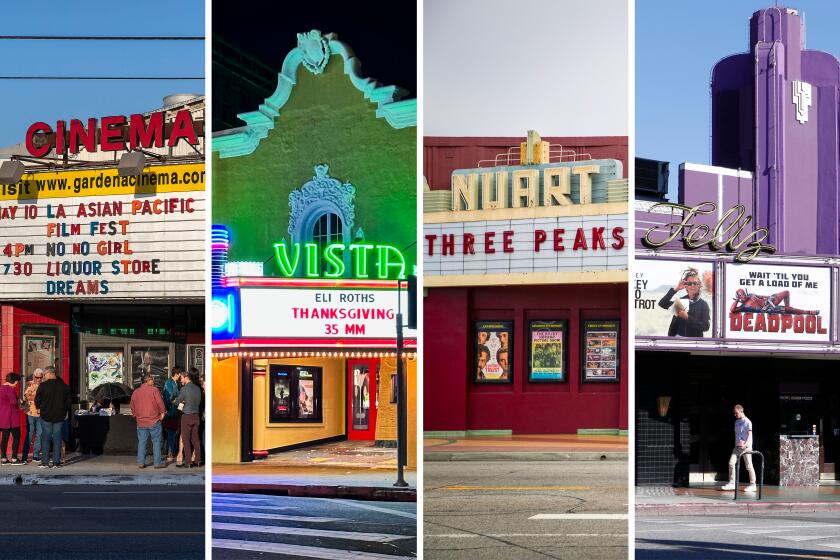
Edward Berger’s latest film, “Ballad of a Small Player,” marks his third feature in just four years. His previous two movies, “All Quiet on the Western Front” and “Conclave,” were highly acclaimed, receiving a total of 17 Academy Award nominations, including Best Picture nominations for both.
You’d expect a film like “Ballad of a Small Player” to generate some buzz, or at least excite fans of movies that are simply, but carefully, made. These are films that prioritize strong visuals, detailed costumes, and a powerful, memorable soundtrack – the kind that stays with you long after the credits roll.
Look, you can absolutely *see* the director’s style all over this new film. It centers around Lord Doyle, a charming but utterly broken man – a con artist and gambler hitting rock bottom in Macau. But honestly, despite a fantastic performance from Colin Farrell – and believe me, I’d watch him in just about anything – I just couldn’t find myself caring about this guy. He’s a narcissist, and even Farrell’s considerable talent couldn’t bridge that gap. When an actor like *that* can’t get you invested, you know the movie has some serious, fundamental flaws – problems as big as a massive, unpaid debt.
The film introduces Doyle – a man who’s given himself the title, as hinted by his first appearance in a reflection on a room service tray. Mirrors are a recurring visual element. His luxurious hotel suite in Macau is messy, and he looks equally disheveled. Despite his state, he has a job to do, so he dresses in his green velvet suit and favorite gloves, then searches for a hidden roll of money. Through narration, Doyle describes himself as a gambler spiraling out of control.
He says he feels almost invisible here, referring to himself as a *gweilo* – a Cantonese word for a foreign ghost who blends into the background. But he also finds this liberating, allowing him to reinvent himself however he chooses.
Doyle is clearly not thinking rationally. Claiming to be invisible is a pretty bold statement, especially for someone who manages to attract attention even in a city like Macau, known for its bright lights and over-the-top displays.

Movies
The 27 best movie theaters in Los Angeles
As a total movie buff, I’ve been checking out all the best places to catch a film in L.A., and I’ve put together a list of 27! It includes iconic spots like the TCL Chinese and the New Beverly, plus cool places like the Alamo Drafthouse, and even figured out which AMC is the best one in Burbank.
The film starts as a comedy, but the director quickly shifts gears, seemingly realizing he’s not skilled or interested in that approach. He’s more at ease with a dramatic, over-the-top style, portraying a man driven by greed and inner decay who’s desperate for one final win. While the story itself isn’t new, the film relies on its Macau setting to offer visually striking scenes, hoping to compensate for the story’s lack of originality.
Doyle briefly hopes things will turn around when he meets Dao Ming (Fala Chen), a casino worker who gives credit to problem gamblers like him, worsening their debt. Despite it not making much sense, Dao Ming feels sorry for Doyle, seeing a kindred spirit in his troubled state.
“It’s never too late to change,” she says to him, though it’s clear she might not know the full story. The film, “Ballad,” directed by Rowan Joffé and based on Lawrence Osborne’s 2014 novel, portrays Dao Ming as someone haunted by the past—possibly in a very real way. Like the book, the movie leaves the audience wondering about the truth.
Doyle becomes intrigued by a hotel guest named Cynthia Blithe (Tilda Swinton), noticing her secretly photographing him, and he suspects her motives aren’t friendly. Like other characters in the film, Cynthia’s true identity is unclear, and Swinton playfully leans into the movie’s exaggerated style with eccentric touches like bright pink glasses and a strikingly styled, electric-looking hairdo.
Berger previously demonstrated a knack for appealing to audiences with films like “All Quiet on the Western Front” and “Conclave,” successfully shifting between genres and getting strong performances from his actors. However, in this new film, he appears as directionless as the main character. He relies heavily on jarring camera work and an excessive sound design, resulting in a chaotic and unfocused story about self-indulgence that ultimately drains the film of its emotional core. It’s an over-the-top experience that feels as draining and pointless as the final hours of a long, exhausting trip where the initial excitement has completely faded.
Read More
- Clash Royale Best Boss Bandit Champion decks
- Vampire’s Fall 2 redeem codes and how to use them (June 2025)
- Mobile Legends January 2026 Leaks: Upcoming new skins, heroes, events and more
- World Eternal Online promo codes and how to use them (September 2025)
- Clash Royale Season 79 “Fire and Ice” January 2026 Update and Balance Changes
- Best Arena 9 Decks in Clast Royale
- Best Hero Card Decks in Clash Royale
- Clash Royale Furnace Evolution best decks guide
- FC Mobile 26: EA opens voting for its official Team of the Year (TOTY)
- Clash Royale Witch Evolution best decks guide
2025-10-16 00:02